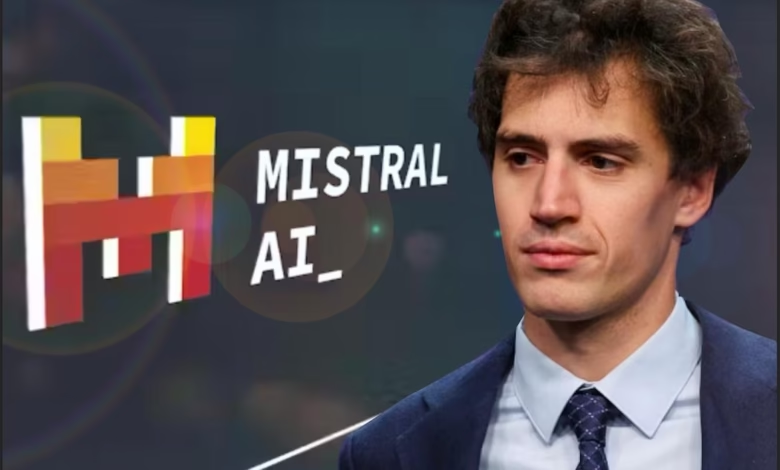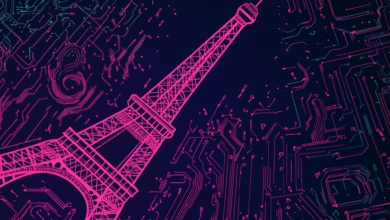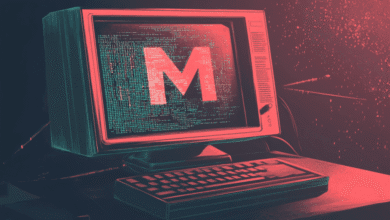Mistral AI’s CEO Rings Alarm on “Deskilling” Risk Amid Rapid AI Adoption

▼ Summary
– **AI’s cognitive risk**: Mensch warns that over-reliance on AI may erode human ability to interpret, synthesize, and judge information, not just eliminate jobs.
– **Deskilling threat**: The bigger concern is people becoming mentally lazy as AI handles information-heavy tasks, leading to a loss of critical thinking skills.
– **Human-centric design**: AI should reinforce human agency, not replace it, by preserving skills like synthesis and criticism in learning and work.
– **Rejecting job displacement hype**: Mensch disputes claims that AI will replace most white-collar jobs, arguing it should amplify human judgment instead.
– **Intentional design solution**: Proposes adding “frictions” in AI tools to keep users mentally engaged and prevent passive reliance on automation.
In a room full of AI optimism at VivaTech Paris, Arthur Mensch, CEO of France’s open-weight model darling Mistral AI, offered a quieter warning. As companies race to embed generative AI into search engines, productivity tools, and enterprise software, Mensch argued the real concern isn’t jobs disappearing. It’s what happens to our capacity to think.
“The bigger risk is that people may become progressively lazy as they increasingly rely on the tech to search for information,” he said on stage. “It’s not about mass unemployment. It’s about deskilling.”
This wasn’t doom-saying, but a surgical critique. Mensch believes the current wave of AI enthusiasm has overlooked something subtle but corrosive: users may slowly lose their ability to interpret, synthesize, and judge information if generative models do all the heavy lifting. That, he said, is the more urgent cognitive risk.
From Tool to Crutch?
At the core of his argument is a human-centric design philosophy. Mensch doesn’t oppose AI. He co-founded Mistral, after all. But he insists its design must reinforce, not replace, human agency.
“Being able to synthesize information and criticize information is a core component to learning,” he said. The concern, he added, is that AI might automate not just the mundane, but the very parts of thinking we need to preserve.
This echoes growing unease among educators and researchers. A 2023 study on AI in professional settings flagged four major risks: deskilling, disconnection, dehumanization, and disinformation. Mensch’s comments mirrored those themes, especially the fear that human judgment may atrophy if AI becomes too central in knowledge work.
He took aim at competitors and commentators who have been, in his words, using “fear-mongering and marketing tactics” around AI’s threat to white-collar employment. Mensch pushed back against claims, like those made recently by Anthropic’s CEO, that AI could replace over half of entry-level white-collar jobs. That view, he said, exaggerates displacement and ignores AI’s ability to amplify human judgment rather than erase it.
Human in the Loop, by Design
It’s a vision that feels increasingly urgent as AI is embedded into everyday tools, Slack, Google Docs, customer service dashboards, often without clear educational scaffolding.
“You can avoid deskilling if you think of it from a design perspective,” he said. “Keep the human active.”
Rather than resisting automation, Mensch is calling for something more nuanced: intentional design that slows users down just enough to stay mentally alert. He’s advocating for “frictions”, small, deliberate obstacles, that force people to question outputs, rethink assumptions, and stay mentally engaged.
It’s a subtle shift, but an important one. As AI tools blend into everyday workflows, the risk isn’t that we’ll be replaced, it’s that we’ll forget how to think. If AI becomes too easy, too invisible, the damage may not show up as unemployment, but as quiet erosion of skill and insight. And by the time we notice, Mensch warned, we may no longer know how to tell the difference.





